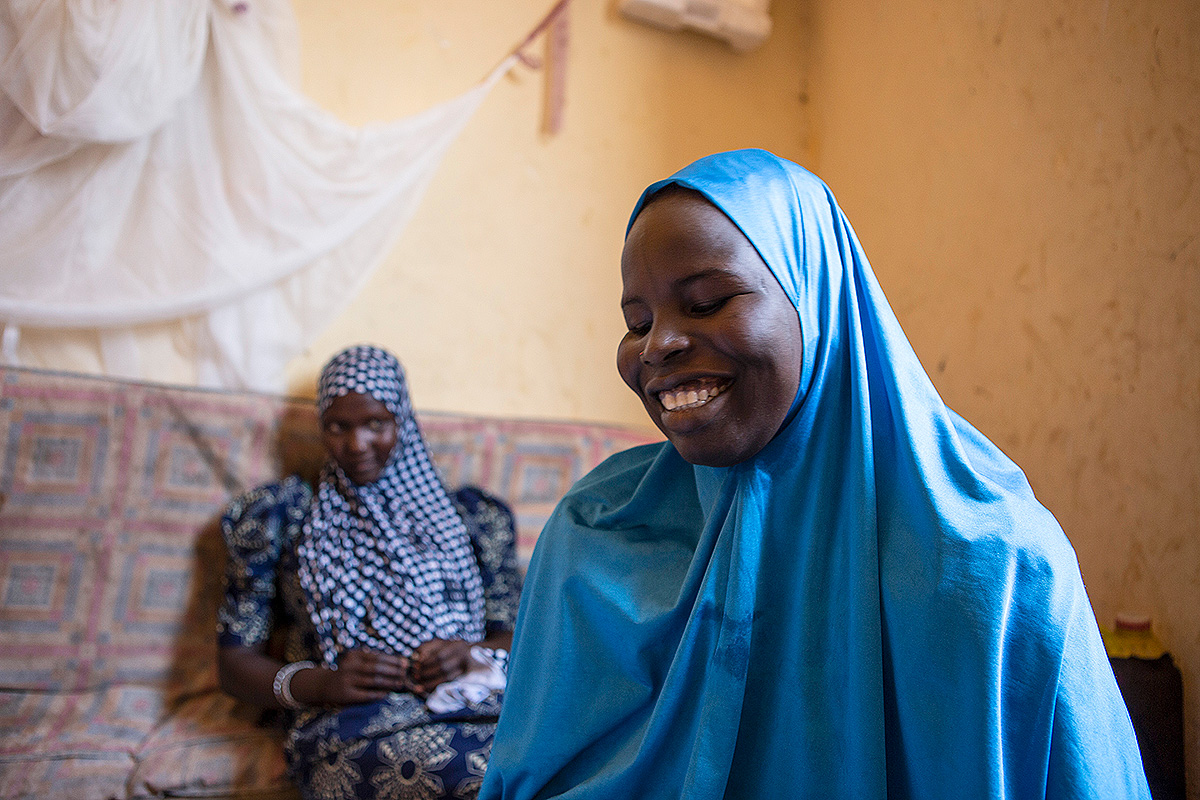
“I've regained a taste for life, and I hope to go home…. My training as a seamstress will allow me to help my family as I did when I was a child.”
In Niger, Boko Haram has upended the lives of millions of people—including Ya Koura. Kidnapped at the age of 12, she became a child bride of the violent extremist group. This is her story of survival, escape, and true freedom.
Ya Koura grew up in Nigeria, where she would get up at dawn and prepare a stew to sell at her doorstep. Then, one day, members of Boko Haram entered her village.
“They started killing and raping,” Ya Koura recalls. “We all fled on our own. They managed to catch me and brought me by force to their hiding place in the middle of the forest. Overnight, I became one of their wives.”
She spent two years in Niger, married against her will to one of the fighters. Throughout her captivity, Ya Koura was obsessed with a single idea: to flee and find her loved ones.
Over several months, Ya Koura became familiar with her kidnappers’ habits, movements, and paths through the region. One morning, she woke up before dawn and mustered all of her courage: "I went out when everyone was still asleep and ran. Thorns were cutting my legs, my feet, but all that mattered was to reach a place where I could finally tell myself: I am free.”
Finally beyond her captors, Ya Koura had no idea where her parents had fled, or if they had survived, since the Boko Haram invasion had scattered her family. She decided to head to a small village in Niger that her family had frequented in the past.
“I thought after we ran, my family might also have taken refuge there,” Ya Koura says. “What a surprise it was to see that almost all of them were there.”
The reunion was brief, as the head of the family was worried that Ya Koura’s captors would try to find her. They sought the authorities’ help, and Ya Koura was taken to the Goudoumaria Center for repentants who had voluntarily left Boko Haram. At the Center, Ya Koura was housed with other women who shared the same experience.
“At first, we didn't talk to each other,” Ya Koura says. “We were all unhappy and anxious. We were afraid of each other. We all came from different places; we spoke different languages.”
Today, life is changing for the women of Goudoumaria. With funding from the European Union, our Niger team supports them in their healing and reconciliation with psychological assistance and activities aimed at encouraging individual transformation such as singing, dancing, and gardening.
“What helps me the most is singing and dancing,” Ya Koura says. “We sing about our experiences, and it is often me who sings the chorus: I repeat the messages of other women…. [We share] a moment of joy that brings us together.”
Our Niger team is also offering professional training courses for women and defectors in Goudoumaria. Ya Koura has chosen to become a seamstress.
“Today, I am happy,” she says. “I want to go back to my community and make a contribution.”